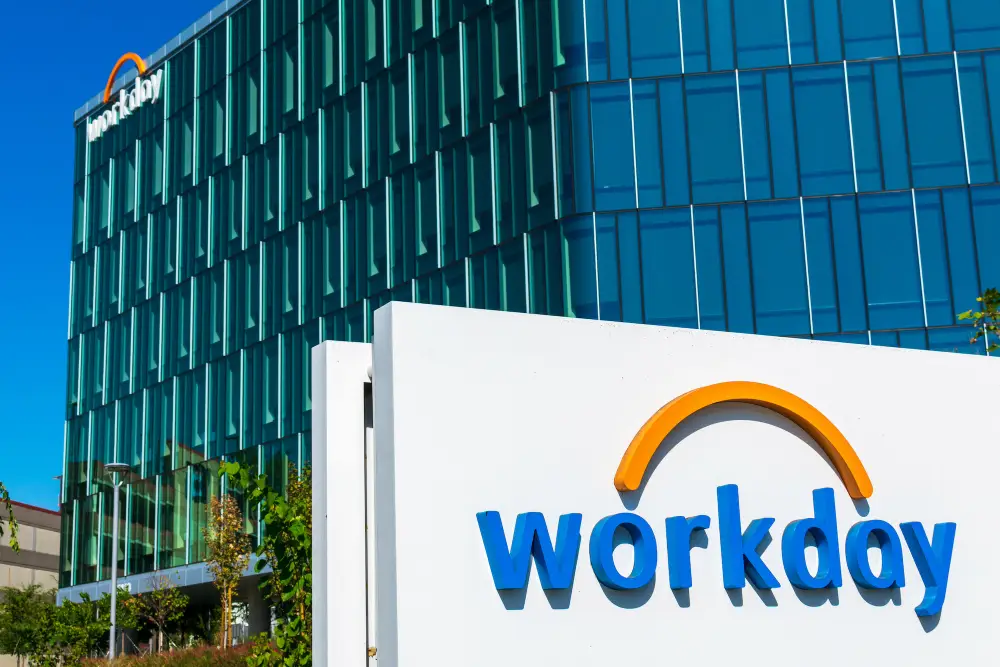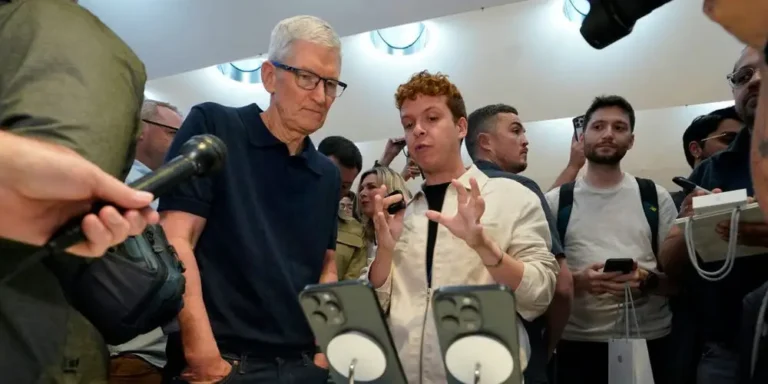A Black Workday employee sued the company after it sent police to his home for a ‘wellness check’

A
A Black Workday employee filed a race and disability discrimination lawsuit against his employer after it sent police to his house for a “wellness check” while he was being treated at a hospital and had requested medical leave.
Anthony Hill, a senior legal counsel at Workday who is Black and on leave from the company, filed the lawsuit in the Northern District of California’s court in December 2023. The case is still ongoing.
In June, the case was dismissed without prejudice because the court ruled that Hill hadn’t adequately pleaded that California law should apply extraterritorially. Workday is based in California, while Hill is in Maryland. Hill has filed an amended complaint, which Workday has moved to dismiss. Court-mediated settlement negotiations last month were unsuccessful.
Hill said he was on medical leave from October 12, 2022, to November 22, 2022.
Leading up to his leave, Hill said, he started drinking more as he faced more stress. On October 12, 2022, he went to the hospital because of “stress, exhaustion, and trauma associated with this and other disparate, discriminatory, retaliatory, harassing and hostile treatment of him” by other Workday employees, the lawsuit said.
That day, Hill emailed his manager to inform her he was having a medical emergency and going to the hospital. He also sent a completed leave request form and said he would file the required Family and Medical Leave Act paperwork soon.
The following day, his manager replied with information about the FMLA and said, “Please don’t worry about work and focus on feeling better.”
On October 20, 2022, while he was still at the hospital, Workday sent police to his house for a “wellness check.”
According to a police report about the incident, a safety and security manager at Workday called the police for a welfare check on Hill because the company was unable to contact Hill or his wife, his emergency contact. The police spoke with Hill’s wife, who confirmed that Hill was in medical treatment, the report said.
Hill told B-17 that he didn’t receive any records, calls or emails from Workday after the last email from his manager on October 13 and before the incident.
At the hospital, Hill couldn’t use his cellphone, so a member of the rehabilitation center staff informed Hill about this and allowed him to call his wife. Hill said that when he heard about this, he felt as if he “was going to have a heart attack,” and his wife, who was home at the time, was “rattled” about the incident.
The police department of Montgomery County, where the wellness check took place, declined to comment as it is not involved in the lawsuit.
“There’s nothing they would’ve thought cops with guns could solve on October 20 that doctors with stethoscopes could not have solved,” Hill told B-17.
Workday declined to comment on this report.
The FMLA guarantees eligible employees of covered employers to take up to 12 weeks of unpaid medical or family leave in a year. The employee must make it clear they need to take leave for FMLA reasons, while the employer should let the employee know they qualify for medical leave and provide the paperwork for the employee to complete.
The Department of Labor requires that employers give employees 15 calendar days to provide their complete medical certification under the FMLA.
Hill said he was initially worried about complying with the FMLA when he was admitted to the hospital because he hadn’t finished the paperwork at the time, but the staff told him of this legal protection. He said the hospital provided the FMLA paperwork within 15 days.
Hill filed an Equal Employment Opportunity Commission charge against Workday in April 2023. In August 2023, he first filed a lawsuit against the company in the Superior Court for the District of Columbia, which was voluntarily dismissed without prejudice.
Returning from medical leave
A few months after returning from leave, Hill asked Workday’s human-resources department in March 2023 for more information on the wellness check. The staff declined to provide him with information or documentation about it.
“They won’t tell me anything. Did they think it was an emergency? Did they think I was in danger?” Hill said. “Did they think I was going to hurt someone? Why did they send police to my house and endanger my wife and kids?”
Cassie Lenning, a partner at Outten & Golden, a law firm that represents tech employees and isn’t involved in the lawsuit, said that while Workday might have been trying to contact Hill to finish his FMLA paperwork, it was uncommon to send police to an employee’s house for a wellness check.
If an employee had mental health issues that the employer was aware of, that could be a situation in which an employer might send someone for a wellness check, Lenning said.
“Even in that circumstance, why wouldn’t they send someone from the office as opposed to the police? There’s still a level of escalation in calling the police, well-intentioned or not,” Lenning said. “I question the judgment of someone who would send police to the home of a Black man. There are racial implications that are being ignored.”
Hill said that after he went back to work, he received “awful treatment,” such as receiving more pushback at work and getting left out of meeting invites. He said he had a modified schedule where he worked half-time.
In January 2023, he told HR about his racial and disability discrimination claims at the company and asked to be transferred to a different group at work. The company’s HR staff investigated the case and then closed it in March, concluding that his claims “lacked merit,” the lawsuit said.
Other claims of work discrimination
Hill has worked at Workday since January 2021. Leading up to his leave, he said, he had been seeking a promotion but had been denied one. When he asked his manager for one, he was told he had to put together and submit a document on his accomplishments.
“That’s a hurdle my non-Black colleagues didn’t have to overcome,” Hill said.
Later, he said, he started getting more pushback in his work, such as when he enforced policies around limiting gift-giving to federal officials that the company wanted him to sign off on. According to the lawsuit, Hill also said a colleague told him during a meeting, “Everybody knows you don’t want to work, Anthony,” and doubled down on his work ethic and professional reputation. Hill told his manager the incident “appeared racist.”
“It was quite clear to me they were setting me up to fail,” Hill said.
In March 2023, Hill was put on paid administrative suspension for five weeks. In May 2023, Hill went on approved disability and medical leave, though he said he was denied long-term disability leave.
“Without a doubt, I was retaliated against over and over again,” Hill said.
Workday is also facing a class-action lawsuit claiming its AI software for employers screens out job applicants for discriminatory reasons.
In 2020, after the deaths of George Floyd, Breonna Taylor, and other Black people at the hands of police, several tech companies shared statements taking a stand against racism. These promises have led to little action to improve diversity, equity, inclusion, and belonging at tech companies.






